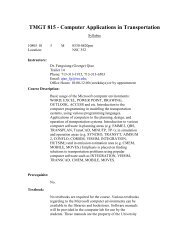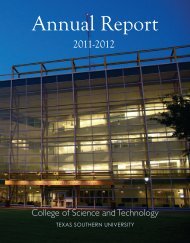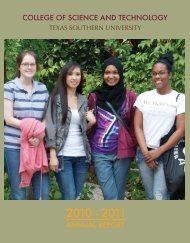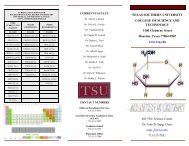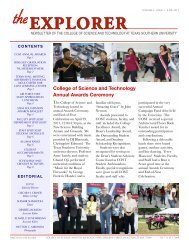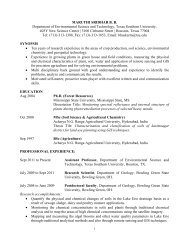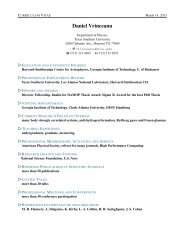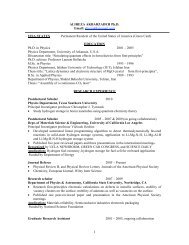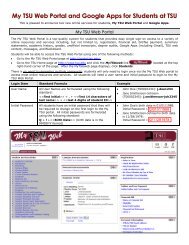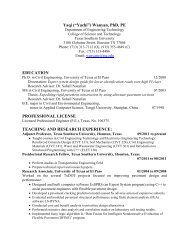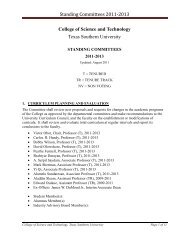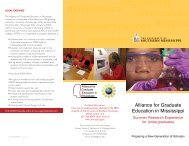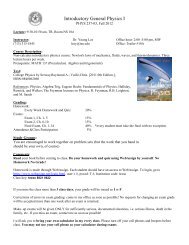Faculty Manual - COST Home Page - Texas Southern University
Faculty Manual - COST Home Page - Texas Southern University
Faculty Manual - COST Home Page - Texas Southern University
You also want an ePaper? Increase the reach of your titles
YUMPU automatically turns print PDFs into web optimized ePapers that Google loves.
3.0 Principle of Academic Freedom<br />
SECTION THREE<br />
THE NATURE OF THE FACULTY<br />
<strong>Texas</strong> <strong>Southern</strong> <strong>University</strong> adheres to the 1940 Statement of Principles on Academic Freedom<br />
and Tenure of the Association of American Colleges and Universities and the American<br />
Association of <strong>University</strong> Professors. The Statement recognizes that “Institutions of higher<br />
learning are conducted for the common good and not to further the interest of an individual<br />
professor or the institution as a whole. The common good depends upon the free search for truth<br />
and its free expression.”<br />
Academic freedom derives from the nature of the quest for knowledge. It is essential to the full<br />
search for truth. Its free exposition applies to both teaching and research, and shall not be<br />
abridged or abused. Academic freedom does not relieve the employee of those duties and<br />
obligations, which are inherent in the employer-employee relationship.<br />
Freedom in research is fundamental to the advancement of truth. Academic freedom in its<br />
teaching aspect is fundamental for the protection of the rights of the teacher in teaching and of<br />
the student to freedom in learning. It carries with it responsibilities correlative with rights.<br />
Each faculty member is entitled to freedom in the classroom in discussing his or her academic<br />
field, but should be careful not to introduce into their teaching controversial matter, which has no<br />
relation to their subject.<br />
Each faculty member is entitled to full freedom in research and in the publication of results, but<br />
research for pecuniary gain should be based upon a written agreement with the authorities of the<br />
institution.<br />
<strong>Faculty</strong> members are citizens, members of a learned profession, and officers of an educational<br />
institution. When they speak or write as citizens, they should be free from institutional<br />
censorship or discipline, but their special position in the community imposes special obligations.<br />
As scholars and educational officers, they should remember that the public might judge their<br />
profession and their institution by their utterances. Hence, they should at all times be accurate,<br />
should exercise appropriate restraint, should show respect for the opinion of others, and should<br />
make every effort to indicate that they are not speaking for the institution.<br />
3.1 Academic Responsibility of a <strong>Faculty</strong> Member<br />
The right of academic freedom for faculty must be accompanied by an equally demanding<br />
requirement for academic responsibility of faculty. A faculty member has responsibilities to the<br />
institution, the profession, the student and society at large. The rights and privileges of a faculty<br />
member extended by society and protected by governing boards and administrators through<br />
written policies and procedures on academic freedom and tenure and as further protected by the<br />
courts, require reciprocally the assumption of certain responsibilities by the faculty members.<br />
Some of these are listed below.<br />
19



